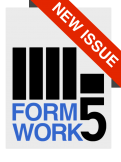The IEU has spent considerable time and energy over more than 12 months in negotiations with the various Catholic diocesan authorities to revise and reinvigorate the long standing Work Practices Agreements (WPAs) for teachers working in NSW and ACT Catholic diocesan schools.
Some of these agreements have been in place with little variation for almost 20 years. The outcomes achieved for teachers in the recent negotiations have been positive and have produced significant improvements in the face of increasing teacher workloads.
Enforceable agreements
Analysis of WPAs has awakened the attention of school leaders, diocesan personnel and IEU members to provisions and entitlements within these agreements that over time have come to been seen as flexible or aspirational, rather than enforceable provisions.
Revised WPAs now highlight the enforceable nature of their provisions as documents which “allow certainty and provide clarity about work expectations that are enforceable and adhered to by staff”.
Further, the settlement of the vexed Disputes Resolution Procedures clause in the Enterprise Agreement confirms the Union’s rights to arbitration of disputes arising under the various WPAs. This element was a crucial victory won in the long dispute with Catholic employers in 2017.
Protecting professional time
Two significant areas of workload which have been improved in recent negotiations are the requirements for after school meetings and morning briefings and teacher use of the release from face to face teaching time in primary schools.
For many dioceses the standard requirements for all meetings (clearly defined) will reduce from current requirements to either 10 hours or 12.5 hours per term, with the more efficient use of technology providing some relief from lengthy briefing sessions.
Some dioceses have maintained a 10 hour standard for many years without experiencing a decline in outcomes.
IEU welcomes all initiatives aimed to protect the precious resource of teacher time outside the classroom. Clear statements have been included in many WPAs to clarify that release from face to face teaching is professional time at the direction of the teacher, not for other school based programs or activities.
Respecting professional judgement
Further measures which both acknowledge teachers’ professional judgement and preserve their time include clear statements around employer expectations which limit responses to email and communications to within regular business hours, and in the more sensible approach to collection of data for educational purposes only.
Support for early career teachers who are required to undertake accreditation is given a more explicit guarantee as to its timing and extent within new WPAs.
Perhaps the greatest challenge in recent negotiations has been to guarantee appropriate levels of support for teachers with classes of more than 30 students, or fewer for multi aged classes, in addition to achieving a maximum cap of 30 students going forward.
There have been significant increases in large class support, for example in Sydney Catholic Schools, where the number of classes with 33/34 students is high, in addition to a commitment to a cap of 30 students, thereby setting new benchmarks to support teachers and reduce workload.
Know your rights and entitlements
As each WPA is specific to one diocesan employer there are variations in both emphasis and entitlements from diocese to diocese and nuances in the specific regulatory framework which applies.
Teachers are encouraged to become familiar with the specific WPA which applies to their workplace and with this knowledge, ensure that each provision is applied and adhered to. These are your rights and entitlements; they are not mere aspirations or goals to achieve if time or money permits.
IEU will continue to build on the achievements of each WPA, to extend more favourable existing conditions and entitlements to all WPAs and to build from the ground up where no such formal agreement is in place.










































































































































